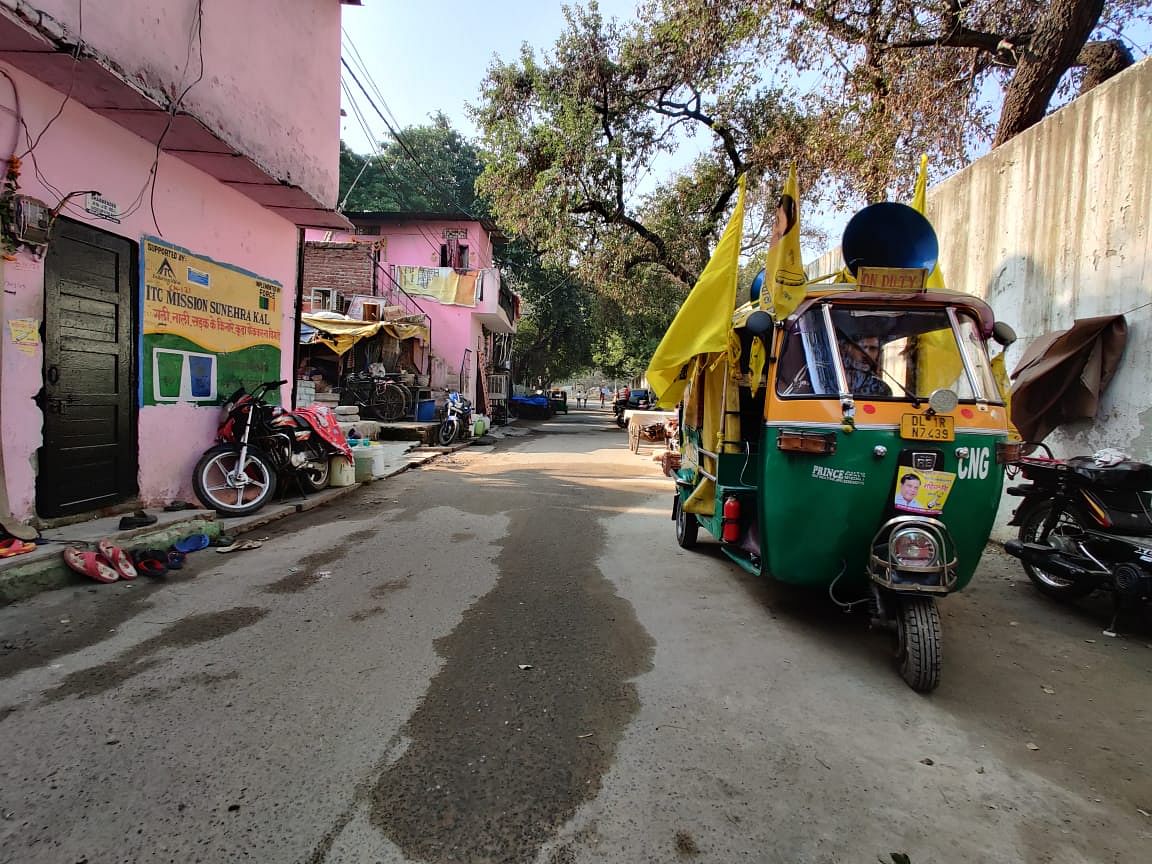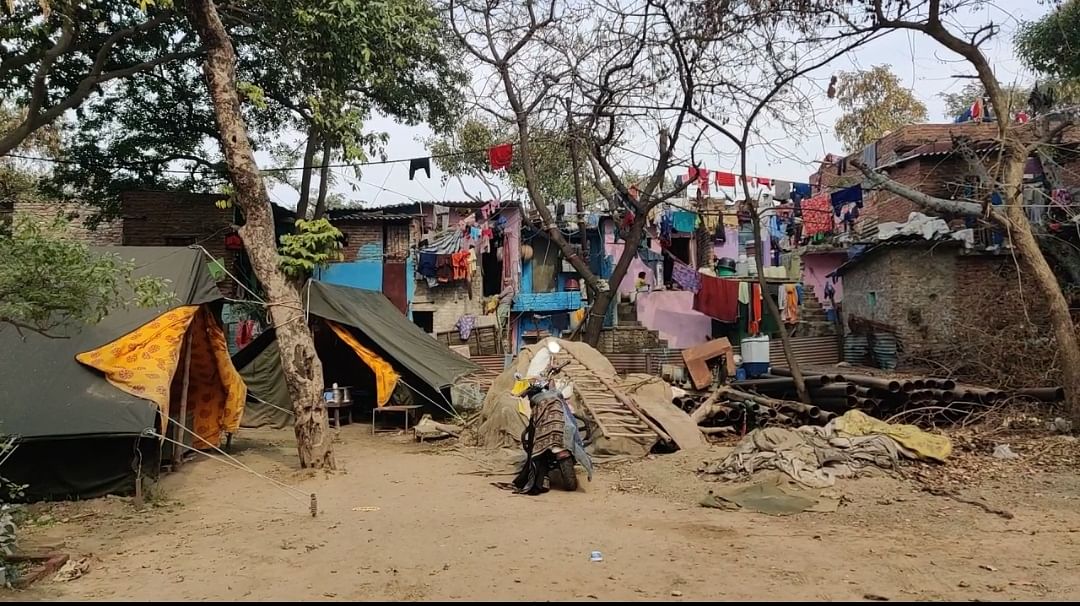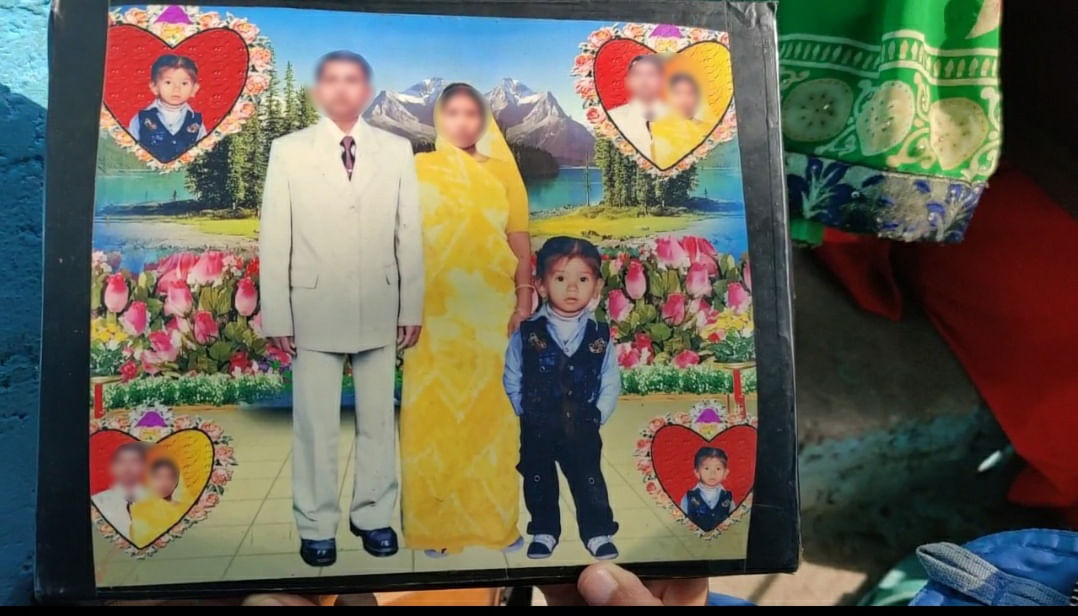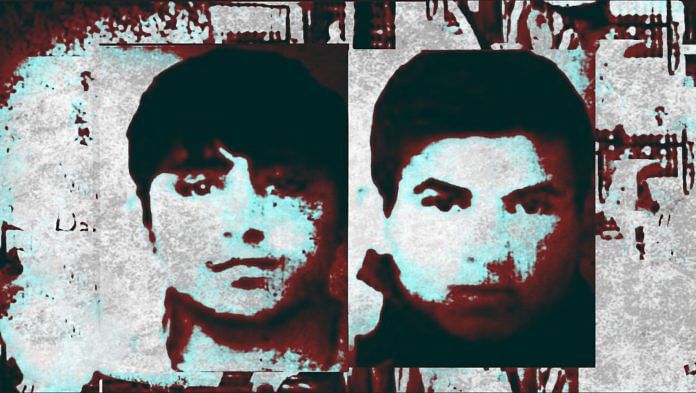New Delhi: Outside the Ravidas Camp slum in the national capital, election campaigns unfold in full swing: Autos with flags and loudspeakers ply the roads, persuading voters to choose their party, women wearing sashes march through the streets, and cracks in the narrow gullies get filled with a fresh coat of cement.
But for two families in the slum, no government effort matters anymore — their sons are being sent to the gallows, and no one has stopped to help them.
These are the families of Vinay Sharma (26) and Pawan Kumar Gupta (25), two of the four convicts on death row for the gang-rape, torture and murder of a 23-year-old medical student on 16 December 2012. The mother of Mukesh Singh, the third convict in the case, also lived here earlier. She now spends most of her time in her native Rajasthan.
“It’s us on one side, and the government on the other,” Pawan’s father, Harilal Gupta, told ThePrint, fighting to hold back tears. “Maybe if someone stood with us it would make survival easier.”

The gruesome nature of the crime and the fact that it occurred in the country’s capital catapulted the case to mainstream media, and it was quickly termed the most horrific rape case India had seen in recent times. Demands for death to the perpetrators rose almost immediately. Asha Devi, the woman’s mother, became the face of a fight against a system mired by ineffective governance for women, patriarchy and gendered violence. That also made her the face of public sentiment.
“I will be happy only on the day when the convicts will be hanged,” she said in an interview to PTI last week.
On the flipside, the families of the convicts are grappling with the eventual hangings of their sons, and learning first-hand the gravity of the death penalty. The issuance of two death warrants has suddenly brought that eventuality closer; prayers have taken on new fervour, and visits to the jail are more urgent. The shock of their sons’ sentences has left them, over the years, with ailments, stress-related deaths within their families, and a bitter sense of betrayal.
“We are mothers too. She [Asha] says she is a mother fighting for her daughter, and what happened to her daughter is wrong. No one denies it. But is she the only mother? Don’t our voices have the right to be heard?” Vinay’s mother, who did not wish to be named, told ThePrint.
“The media has been one-sided about the whole thing. Our poverty is what damned us, and that is why our voices have been erased.”
Also read: Gym instructor, fruitseller, bus driver — the 6 men convicted in Nirbhaya gangrape-murder
Coping when your son is on death row
Inside the slum, Pawan Kumar Gupta’s family of three — his father, sister, and mother — live in a room which is approximately 10 by 8 feet. One bed occupies half the room, a sink and kitchen area takes up the space of a corner. On the left is a small shrine with freshly lit incense and an apple for the gods. It’s the only private place left for the family, and no one is allowed inside.
“Our neighbours have talked behind our backs… The media has hounded us only to later twist our words. Our son has been vilified beyond return. We don’t let anyone beyond this door, not for any reason,” said Gupta’s mother.
In the years since the case came to light in 2012, Gupta’s mother developed a steady stream of illnesses, on top of the limp she was born with. She now suffers from thyroid problems, high blood pressure, an imbalance of blood sugar levels, and anxiety, none of which she had prior to the case.
In Vinay Sharma’s household, a few meters away, both his father and 19 year-old-sister developed diabetes out of stress in 2013, soon after he was sentenced by a local court.
“If I don’t take my medication, especially for a long time, I’ll be rushed straight to the ICU. The doctors told me it’s because of stress,” said the 19-year-old, who also didn’t wish to be named.
Also read: All 4 convicts of 16 December gang rape will be hanged together in a row — a first in India
‘Not the biggest or worst case’
The effects of death penalty on the families of convicts have been severely understudied in India. The Death Penalty India Report (2000-2013) notes that while convicts are routinely sentenced to death, “there has been a complete absence of discussion to absorb the consequences of the State decision to punish”.
The families of the two convicts blame public perception and “trial by media” for what they see as an effort to suppress their voices and experiences in the ongoing debate on rape and the punishment for it in India.
Both families believe their sons should be forgiven with a chance to reform in place of being hanged, but the high-profile nature of the case and close public eye has whittled down hopes to a string.
“This wasn’t the biggest or worst rape case India has seen,” said Vinay’s sister. “It became the biggest and worst rape case. The media caught wind of it, and it caught the public’s attention, and now the narrative is that these hangings will set a precedent to all rapists. But these four men are not the enemy of the public. The horrors of rape exist beyond them,” she added.
She was referring to the Unnao and Kathua rape cases, two other high-profile cases that emerged in 2017 and 2018, respectively. In the former, a former BJP MLA has been sentenced to life imprisonment.
Gupta’s 17-year-old sister makes the same argument. “If the crime is the same, why should the time be any different? Why are only these men being hanged? The common denominator is that we’re all from poor backgrounds, and we don’t have the money to buy out the media.”
The Death Penalty India Report observed that for several families, “the spectre of death slowly became a part of their daily lives” and that their existences were “mixed with helplessness and despair at being unable to meaningfully help the prisoner in any way”.
In February 2013, Gupta’s youngest sister aged 10 was ill and lying in a corner of the room when terrorist Afzal Guru was hanged. Hearing the news of his hanging, the young girl died of shock thinking about her brother’s plight, the family alleges.
Gupta’s death will leave his mother with two children less, and two daughters left — the one who lives with them and another who is married.
Also read: Delhi women will vote on Saturday, but not because they feel safe
Hope for a miracle
The Ravidas Camp, situated between a medieval 15th century tomb and temple, is a jhuggi-jhopdi settlement that came into being in 1993. Although the slum and temple are named after the Dalit Bhakti movement saint Ravidas, it houses migrants of all castes.

The upper-caste Sharmas live in a small quarter in a house on the first floor, facing the tomb. The Guptas live a few meters away, on the ground floor right next to the pradhan’s home. But the two families never meet to grieve together or express solidarity with one another.
“We don’t meet them. We are Pandits, Brahmins, so we speak about it among ourselves and god. Only god can help us, no one else,” said Sharma’s mother, denying the families ever knew or spoke to each other.
“What’s the point of speaking with them? Only god can understand our pain. We don’t speak to anyone in this colony. You can ask around,” Gupta’s mother replied when asked.
Their only point of convergence is A.P. Singh, the lawyer who took on the case representing the convicts. On 5 February, the Delhi High Court ruled that all the convicts hang together, and gave Gupta one week to exercise all legal remedies in the case. Singh told ThePrint that that’s exactly what his council would do, and produced a small stack of papers.
“These attested documents prove that Pawan was a minor at the time of the crime, but it’s a fact the Delhi Police has been trying to hide. They got a lot of slack for letting one juvenile go, so they couldn’t admit that there were two juveniles at the time,” he said.
The high court had earlier dismissed this claim. All other convicts have exhausted their legal routes, and only Gupta is left with filing mercy and curative petitions to the court and President of India.
The belief in their sons’ innocence aside, the families still hope the sentence will be mitigated.
Sharma’s father, breaking down, pulled out a baby picture of Vinay as well as certificates he’s won from jail for various achievements and competitions, “Surely this must mean something,” he said, flipping through them. He knows it will take a miracle, “God is our only solace, and it’s in god’s hands now.”

Gupta’s mother clutched her chest, “If he’s truly wrong, and he is hanged, our whole family will commit suicide. That’s it. He was my only son.”
Also read: Fast-track special courts for rape cases remain non-starter as states cite fund crunch




Now they are taking the name of God and asking His help to save their criminals….Did their sons took permission from God bfore committing such a henious crime…..?? its not the case of Nirbhaya….this can happen to anyone including their own daughters … what would have they done if someone else did same thing with their own daughters ??? This is such a barbaric crime which even God will not forgive no matter how much they pray or keep rituals …….Such people need to be given counselling first before they bring up such kinds of rapists in future …
as pawan gupta’s mother said-whole family would commit suicide if he is hanged,,,,i think they had delayed a long in committing suicide….they should have done that much earlier when their sons were proved guilty of the barbarious crime…….due to such sick minded and shameless parents blindly attached to their relations …such barbaric criminals are being born in the society…….
I agree that they had to be hanged. But then why were Nithari killers given life sentence? Dhananjay Chatteejee and Ranga/Billa were also hanged for rape and murder. The common factor – they were all poor and therefore of no consequence!! Why were Kathua rapists not hanged – the victim here was a minor!
This is a paid article
How can a family still support their son who is nothing but a devil incarnate. Shame on them.
Thank you to The Print for this article. Before the cancel culture, there was a time when we would actually read about all sides of an issue. Sad to hear of their story but it is heartening that it is being told. Simran Sirur has done a very good job.
None of the crap detailed is an excuse for any crime let alone rape and murder. These SOB’s need to be hanged yesterday.
I partly agree with the article, these four convict deserved the severe punishment as per law and which is already been awarded by many and finally by supreme court. And also agree with their rationale about why only these four why not the demon who were involve Kathua and Unao case are too they are no less than these four. They should be hang too…Sorry to say family these criminal should forget about these demon they are neither son or brother any more too any one the are inhuman and a total shame on humanity.